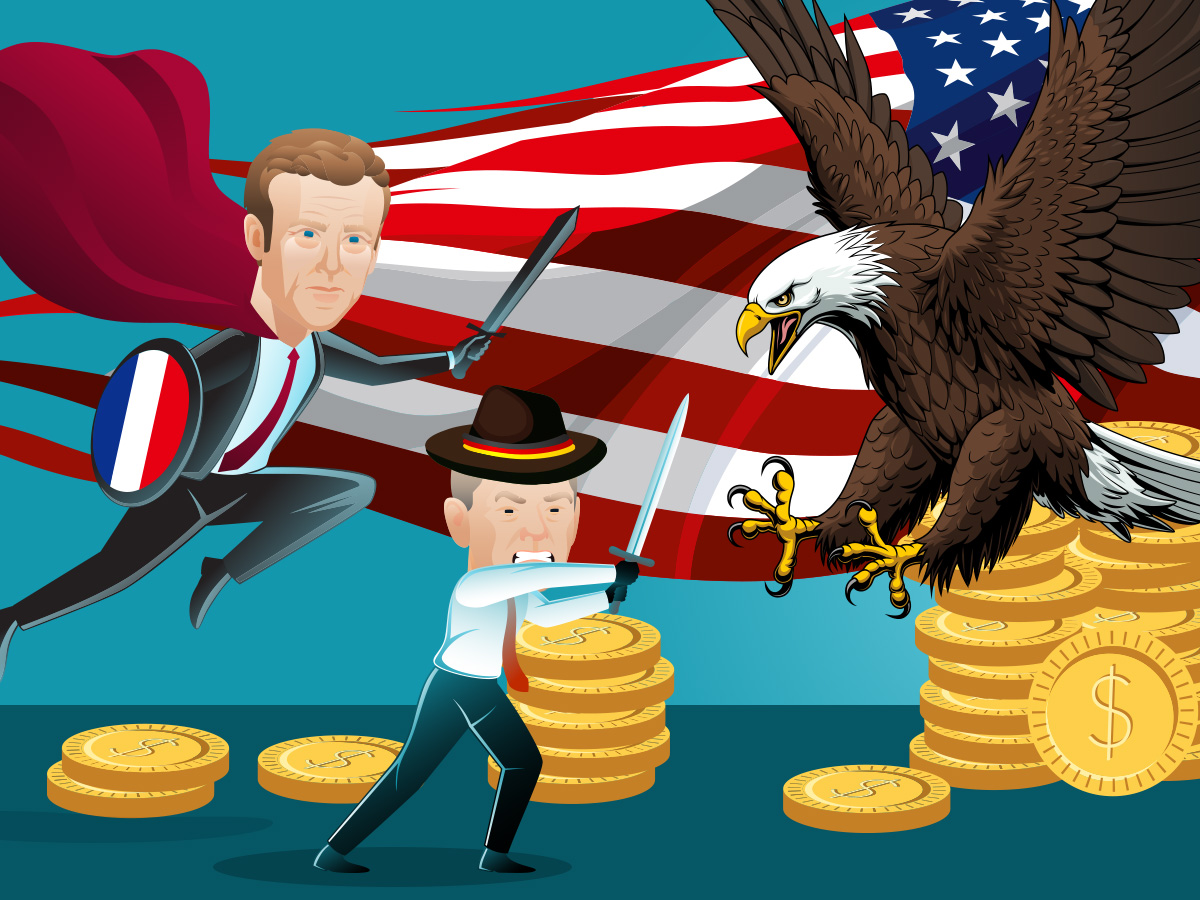It’s been several weeks ago that President Biden introduced his Inflation Reduction Act, as the multibillion-dollar green subsidies act got dubbed. While it was welcomed by much of the U.S., the EU Member States were not equally so happy.
On the contrary, it prompted a series of steps.
Starting with French President Emmanuel Macron criticizing those provisions as “super aggressive” and including yet another attempt from him to get closer to German Chancellor Olaf Scholz, leaving their problematic relations behind.
Thought the two countries (and leaders) are at loggerheads over several issues, like Berlin’s €200 billion energy price relief package or the Future Combat Air System or the European Sky Shield Initiative, the old Roman proverb, my enemy’s enemy is my friend, might make them find a common cause again.
Both countries view the American subsidy package as a threat against European industry that might siphon off investment from the continent.
The first joint steps were already taken before Christmas, when, on December 19, the two countries’ economic ministers said Europe must match US subsidies for green industry and called for state aid rules that prevent distortions within the single market.
The vision is simple: the EU has to gain indisputable leadership on green industry.
Well, according to available data, France and Germany account for most EU subsidies, in fact, Paris and Berlin together account for 77 percent of the currently existing €672 billion subsidies’ programs. (On the other hand, they only accounted for 38 percent of total industrial production and 42 percent of the bloc’s GDP.) Italy, the third has only 7.65 percent.
A framework-idea has recently been published by the French government in the form of a non-paper on January 9, titled a “Made in Europe” strategy
Though it obviously tries to balance between the Member States and transatlantic friendship, the EU also came up with a Green Deal Industrial Plan. It is basically yet another “crisis framework”, that would supposedly be “temporary”, as Commission President Ursula von der Leyen put it in Davos, to make investment stay in Europe. It would mean simpler procedures, easier calculations and accelerated approvals.
The how it will work out is not answered, yet.
Funding for it is also a mystery. The EU has pledged to create a “European Sovereignty Fund”, but it is still an idea that exists only in well-worded, glitzy documents, and is to remain so, especially as long as Berlin is reluctant to finance it.
Paris might find a strong enough supporter in Madrid to convince the Germans. Spain and France have just signed a comprehensive friendship and cooperation treaty (that bears great resemblance to the German-Franco version). On a joint press conference, the leaders, claiming that Europe was “facing a critical moment”, called for a “proactive” response to the U.S.’s steps and for an “ambitious strategy that must be implemented quickly to guarantee the competitivity of our economy.”
While both Berlin and Paris have repeatedly reassured their fellow member states that they didn’t mean to put the new regulations in place just for their own benefits, maybe understandably, not everybody is completely satisfied with the sudden German-Franco friendship.
Smaller states (like the Netherlands and the Nordic States) have repeatedly pleaded for more caution before state aid rules could be further relaxed, fearing that some (meaning France and Germany) might gain disproportionate advantage.
France and Germany might be both necessary to propel the EU into a green future, yet they need to do it with not leaving the rest behind. The EU is, after all, based on the principle of solidarity. At least is should be so.
